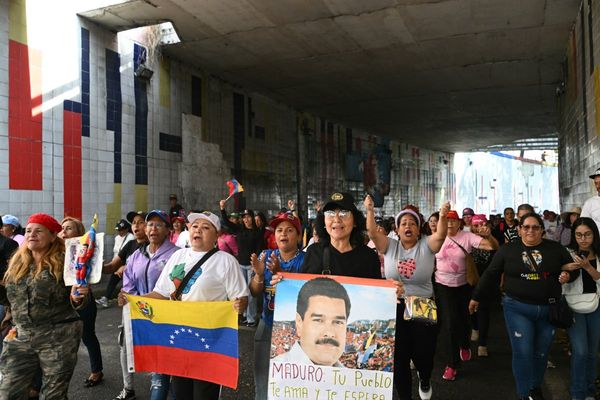
By Brian Hioe
The amount of confirmed coronavirus cases in Taiwan is on the rise. The Central Epidemic Command Center (CECC) has announced a total of 216 confirmed cases of COVID-19 as of March 24. Soon after Taiwan announced its 50th coronavirus case on March 13, and that number had doubled within a week.
The CECC reports the majority of COVID-19 cases as imported, denying community transmission is taking place in Taiwan. Although Taiwan shut borders to non-citizens last week, thousands of Taiwanese have begun returning from abroad as much of the world is on lockdown. Continued school closures abroad will bring thousands more home. In response, the government has mandated retroactive testing and quarantines for previous returnees.
Fears escalating
As 37 local transmission cases have occured, concerns are on the rise that community transmission has begun to take root in Taiwan. The Taiwanese government might be reluctant to acknowledge this for fear of social panic, which would necessitate a lockdown of society as a whole. Some individuals were reportedly denied testing based on the justification that they had no travel history.
Similarly, the Taiwanese government may fear that the very announcement of community transmission will damage Taiwan’s international credibility as the country has been widely praised for having successfully contained the COVID-19 spread. However, Health Minister Chen Shih-chung (陳時中) previously stated that community transmission was “unavoidable” in Taiwan. All the while, other government officials have attempted to project calm, as Premier Su Tseng-chang (蘇貞昌) has stated that he does not believe there is any need for the government to assume emergency powers to respond to the epidemic just yet.
But the precautions taken by Taiwan’s government amid these fears have extended even to cancelling military visits from the US and Singapore. This development came at a particularly sensitive time,as Chinese efforts at militarily intimidating Taiwan have continued during the coronavirus outbreak, the Taiwanese military conducted exercises simulating intercepting enemy aircraft earlier today.
Containing the spread among returning individuals?
Whether the special transport system set up for individuals returning from abroad can sustain the increasing volume of returnees remains a question. But in order to meet the quarantine capacity, Taipei has opened a fourth quarantine hotel earlier this week, and New Taipei City is also to open new quarantine hotels.
For those returning from abroad, their mandatory quarantine is monitored by police using cell phone apps and daily check-ins. Police have also been checking IDs at nightclubs because of individuals who have broken their quarantines. Violators could face a penalty of up to NT$ 1 million. A number of nightclubs and nightlife institutions have announced temporary closures because of the coronavirus epidemic. Taiwanese legislators have called for an increase in penalties for breaking the Communicable Disease Control Act or spreading rumors about disease outbreaks.
Closures continue to take place, with fears that families traveling domestically for the upcoming Tomb Sweeping Holiday this weekend could lead to the spread of COVID-19. It is possible that the entry ban on non-citizens entering Taiwan was implemented because of the upcoming Tomb Sweeping Holiday, when a high number of Taiwanese would be traveling. Cemeteries have been called on to restrict the number of individuals allowed to enter at the same time. Similarly, some temples have begun moving services to online streaming.
Regulations regarding air travel have been a major focus of the efforts to prevent a widespread outbreak. Taiwan’s CDC announced a ban of flight transfers in Taiwan for the next 14 days as another way to prevent the spread of the coronavirus. Passengers with a temperature of over 37.5 degrees Celsius will be denied boarding, and all passengers are advised to wear a face mask throughout the flight except when they are having meals or drinks. The National Immigration Agency has stated that travel passing through Taoyuan International Airport is lower than during the 2003 SARS crisis.
Preventing shortages
To prevent face mask shortages, the government continues to increase manufacturing production. Taiwan’s Ministry of Economic Affairs hopes that the daily manufacturing capacity for medical masks will reach 13 million per day.
A second round of online purchases for medical masks is scheduled to begin on Wednesday. The Taiwanese government has denied, however, reports that it is exporting medical masks in order to curry diplomatic favor, stressing that 100,000 masks sent to Paraguay were purchased rather than exported from Taiwan.
Similarly, responding to panic buying of toilet paper, instant noodles, and canned food, Premier Su Tseng-chang stated in public comments that Taiwanese do not need to panic buy because Taiwan has ample food supplies and that toilet paper manufacturers have sufficient capacity to increase production.
The News Lens has been authorized to repost this article. The original post was published on New Bloom here.
TNL Editor: Nicholas Haggerty (@thenewslensintl)
If you enjoyed this article and want to receive more story updates in your news feed, please be sure to follow our Facebook.







